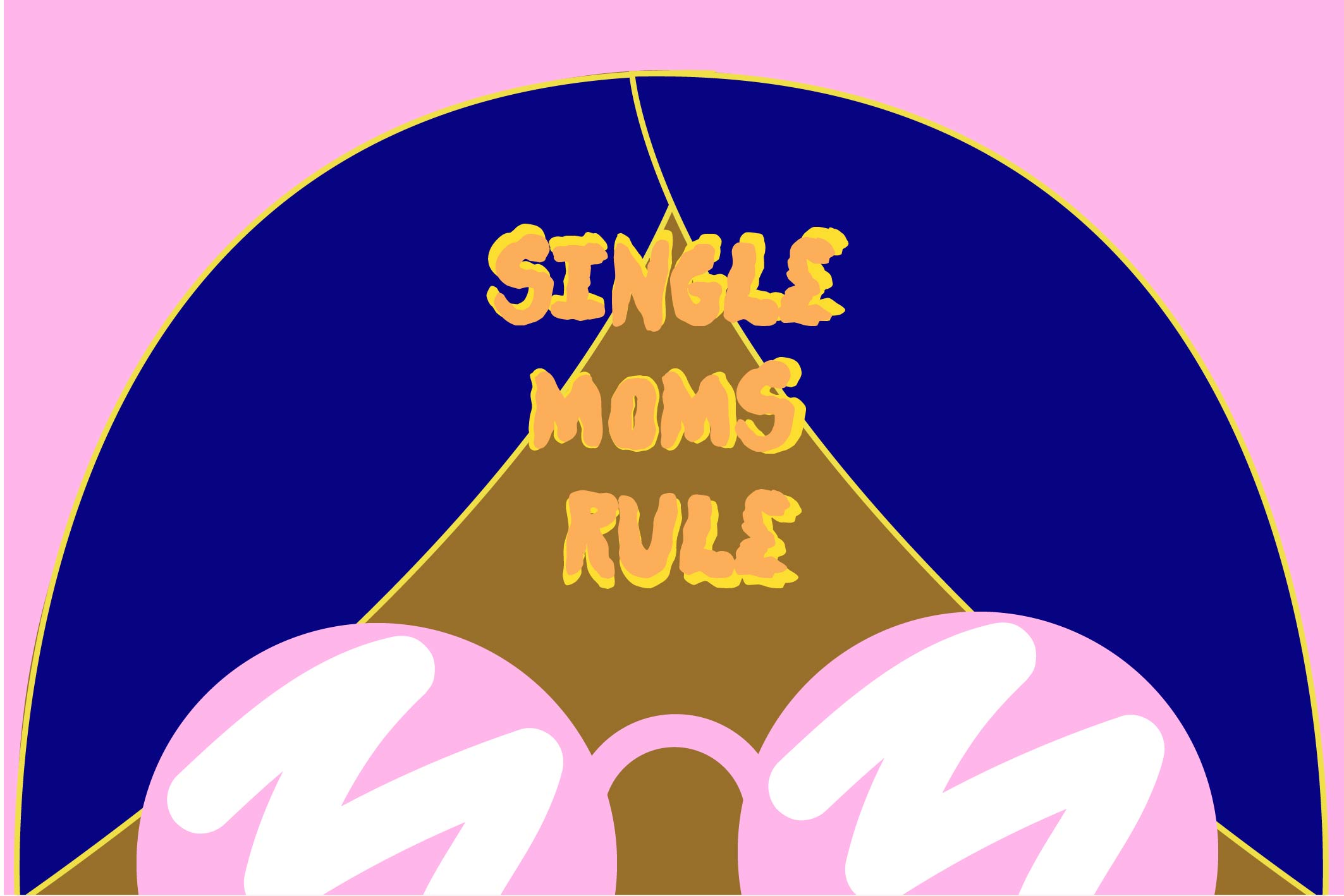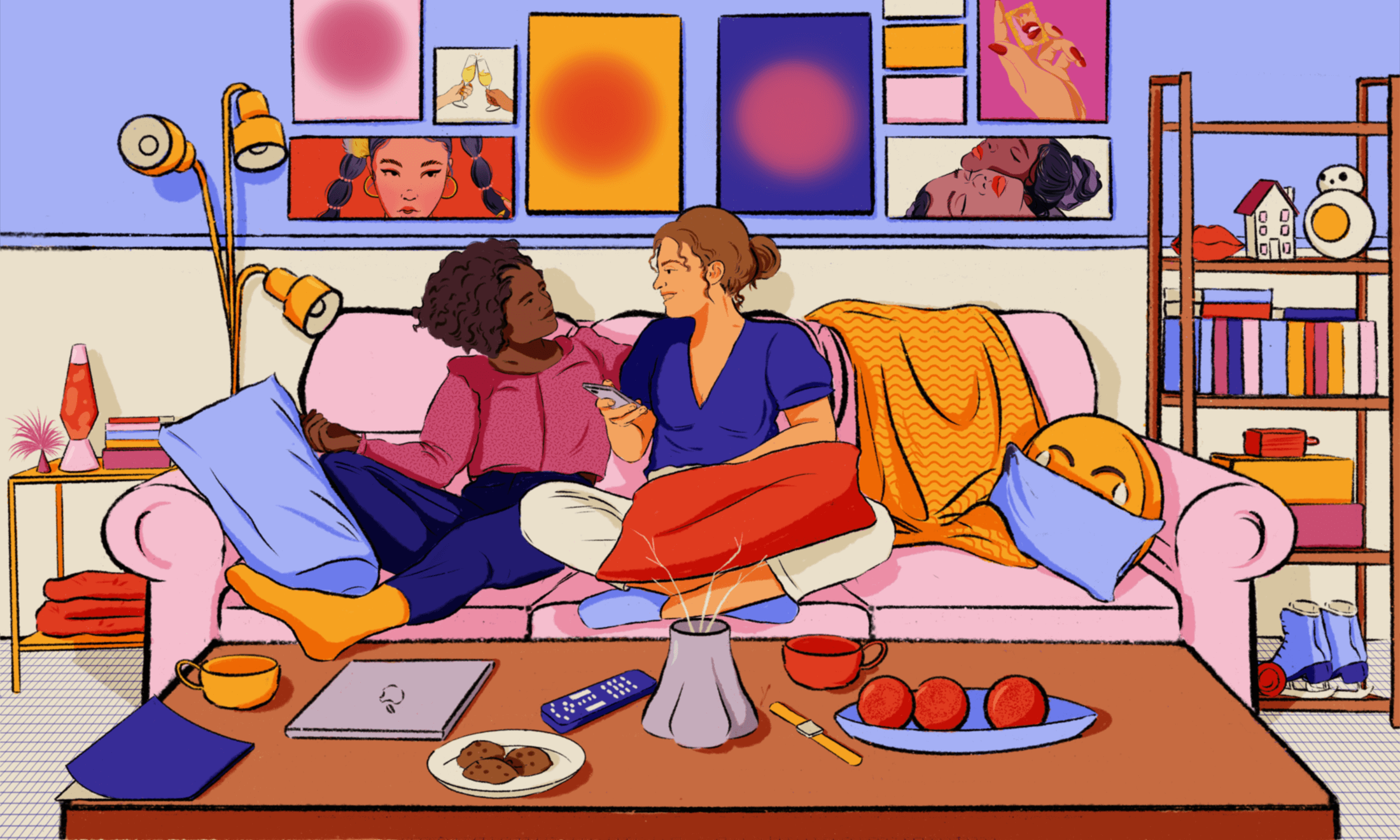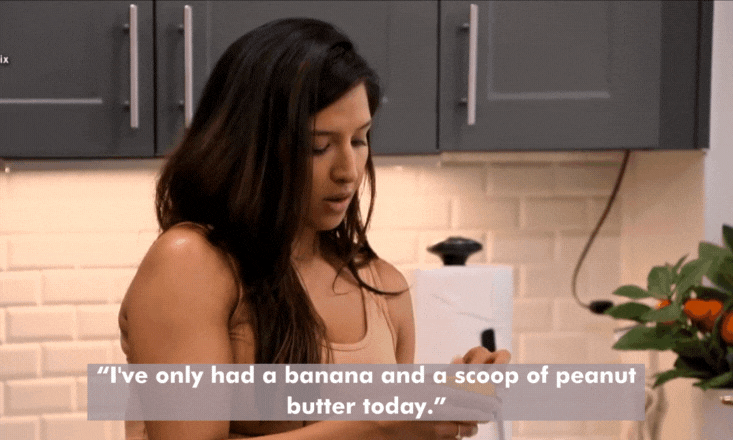
One of the most defining moments of adulthood is figuring out the fallibility and humanity of your parents. Accepting, loving and celebrating our flawed parents, not in spite of, but because of their inconsistencies, allows us to have robust adult relationships with them.
But when does such an epiphany happen for the child of a single parent? When your childhood is governed by a parental relationship that is rarely explored, and most regularly maligned in popular imagination, where do you look for points of comparison for your own familial experience?
The experience of navigating the single mother/daughter relationship is full of multiplicities and paradoxes. Free from the burden of comparanda, my mum, sister and I were able to live in an Amazonian-esque sisterhood, raising and guiding one another through the trials of life.
We often joke even now, that we are unable to find the patience or resources to pander to men or their needs, having not been subjected to them for the last 20 years. I see the difference between me and my women and non-binary peers who were raised in nuclear families. I have no unconscious servility when it comes to talking to men, because, thankfully, no one ever taught me that I should. Most men hate that about me – I’m grateful to my mum for that.
“Agency was never a luxury our story was afforded – which sat at total odds with the truth of our experience”
However, without a default to compare ourselves to, it was almost impossible to identify and resolve toxic and damaging dynamics in our utopian trio. How can you possibly know what ‘normal’ looks like in a family like ours, when ostensibly, our entire family dynamic was being read as abnormal, or worse, as some kind of tragedy from which we were desperate to be saved?
Everyone thinks they know your story before you tell it. Agency was never a luxury our story was afforded – which sat at total odds with the truth of our experience. My mum had fallen pregnant to the love of her life and childhood sweetheart, but unfortunately had found herself raising me utterly alone. Rather than give me up for adoption as her Sikh traditional family encouraged her to, she decided to forge her own path, and leave her Bradford hometown to find refuge from the stifling desi cultural patriarchy that she feared would dominate both our lives if we stayed.
It followed us regardless, but I will always be thankful for my mother’s choice to find all the strength to lift us out of that. I’m 21 now, as she was. But I couldn’t do all of that. I don’t tell these stories to evoke some voyeuristic liberal pity or to create yet another tropey story for single mums, but rather to recast expectations. She chose this. She chose to raise me alone rather than with a man she didn’t trust, or in a community that wouldn’t support her.
“Our pain is real, but it is to be explored and understood rather than consumed and spectated”
Sure, we’ve faced struggles here – but ultimately, ours have been a story of strength. It is pure misogyny to search for vulnerability and pain in the stories of single mothers without allowing for the agency of self-narration. Our pain is real, but it is to be explored and understood rather than consumed and spectated.
Single mothers are expected to fit static (and jarring) narratives; the teen mum, the abandoned frump, the man hater. The world seemed to perceive my mum in ways that were constantly underpinned by her sexuality; silently wondering whether it was some youthful promiscuity or an inability to “keep a man” that had landed her in her current state. All of this had an implicit impact on my developing sexual identity as a young woman.
For me, my mum’s story was simple; she fell in love with the wrong man, and it didn’t work out the way it could have or should have. But for my mum, who in various ways had been imbued by the sexual politics of the Sikh Punjabi community, falling in love outside of marriage, and outside of the community, always was and remained her unforgivable sin.
The inconsistency baffled me from my earliest memories; as a child, I simply couldn’t make sense of the paradox where my totally unapologetic, fiercely independent mother was also constantly ashamed of her sexual past. “Don’t make my mistakes”, she would constantly implore me. I didn’t know what to make of it. Was I the mistake? Once, at a friend’s dinner party, someone asked intrusively, how my mum came to be raising two children alone. Midway through my mum’s honest narration, the friend interrupted, rolling their eyes, and said: “oh this is too confusing! There’s this man here and that man there!” I was 9 or 10, and have never forgotten the look of shame that flashed over my mum’s face when she was silenced that day.
“Too many of us walked into our lessons at school unable to focus on anything other than the instability that pushed our mums to the brink”
No wonder she was terrified of how the world would perceive my sexual identity. How was she supposed to meaningfully convince her daughters, or herself, that we were entitled to sexual agency while friends, family, and strangers constantly demonstrated that we weren’t?
Identity, patriarchy and sexuality are some of the most important issues to unpack in the single mother/daughter dynamic, but nothing was more real or overwhelming than the financial alienation that many of us experience.
Living on one wage in London is already a madness; try doing it with two kids. In the West, living in poverty often looks like a normal person, in normal clothes, looking at a pile of bills and crying. Too many kids know what that looks like. Too many of us walked into our lessons at school unable to focus on anything other than the instability that pushed our mums to the brink.
In real terms, the financial instability that dominates the lives of working class single mums is not just a financial issue. Money makes the world go round, especially when you don’t have any. There is plenty of research indicating that single mothers are hit hardest by austerity; what this means for the children raised in those families is an early exposure to distress and existential instability that places money above all else.
“the motivation to get old enough and equipped enough to lift my mum out of her nine-to-five-just-to-stay-alive routine has shaped literally everything I have ever done”
The burden never really dissipates; what was once a pragmatic fear of “will the electricity be on when I get home?” has now turned into “how will I be able to ensure my mum is able to retire?” I have been motivated by these questions for as long as I can remember, the motivation to get old enough and equipped enough to lift my mum out of her nine-to-five-just-to-stay-alive routine has shaped literally everything I have ever done. This is the way it is. But there has never been space to be or do much else.
Along the way, I have wanted to deviate. Be a lifelong political campaigner, a writer, or a film director. Somehow, I always end up picking the job offering the biggest number – I always felt like I needed to. Who else is going to support us if not me?
The first time I remember anyone asking me about my Dad, or lack thereof, I was 8. I didn’t feel this parent shaped hole in the fabric of my life, and I still don’t. “I don’t have a dad, and I’ve never wanted one,” I respond. Life for children of single parents is richly complicated; simple stories don’t exist. We should always resist the urge, therefore, to compress valid experiences because they don’t meet a comfortable default.
My mum got me to Oxford without a man to support her; so let’s stop constructing a narrative that alienates single mothers from the excellence of what they achieve, despite the odds. Instead, let’s spend time empowering them to do just that, and give them space to tell their stories whilst they do it.









